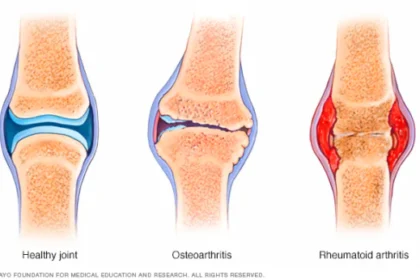In an era where health consciousness and the importance of hydration are frequently underscored, the story of a young mother’s sudden and heartbreaking demise from water toxicity serves as a somber reminder of the delicate balance required in maintaining our well-being. Nestled in the heartland of Indiana, a seemingly routine act—drinking water to stay hydrated—unveiled a devastating and lesser-known reality: the potential toxicity of too much water.
This tragedy has cast a spotlight on the risks associated with an excessive intake of fluids and prompts us to reevaluate our understanding of what it means to care for our bodies. As we delve into the details of this heart-wrenching incident, we uncover the science behind water intoxication and its unexpected, life-threatening consequences.
This article explores the circumstances surrounding the untimely passing of a young mother, aiming to shed light on the crucial balance between health-conscious choices and the potential dangers that may arise when good intentions go awry.
The Science Behind Water Toxicity
The heartbreaking incident involving Ashley Summers on a Fourth of July weekend getaway has cast an unforgiving spotlight on the hidden threat of water toxicity. Her tragic story underscores the need for a nuanced understanding of hydration, as the quest for health and well-being can sometimes unwittingly lead us down treacherous paths. While the merits of staying adequately hydrated are universally acknowledged, the consequences of excessive water consumption can be catastrophic, as exemplified by Summers’ untimely demise.
The Heartbreaking Incident:
Amid the picturesque beauty of Lake Freeman during a Fourth of July weekend, Summers’ experience took a dire turn. Faced with the typical discomforts of a scorching summer day, she exhibited symptoms—such as a pounding headache and lightheadedness—that are commonly attributed to dehydration.
Responding intuitively, she began consuming water in an effort to alleviate her discomfort. In the span of just 20 minutes, she ingested around half a gallon of water.
The outcome was tragically unexpected: Summers lost consciousness and, despite desperate efforts to save her, her life was claimed by brain swelling resulting from a rapid decrease in blood sodium levels—a phenomenon known as hyponatremia.
Understanding Water Toxicity:
Water intoxication is a grave condition that emerges when the body’s equilibrium is disrupted by the excessive consumption of water. The essence of this contradiction lies in the very nature of hydration; an essential and life-sustaining practice can transform into a perilous threat when taken to extremes.
At the core of this peril is sodium, an electrolyte that plays a pivotal role in fluid balance regulation. Rapid and excessive water intake can dilute sodium levels in the blood, prompting cells to swell and initiating a cascade of detrimental health effects.
Signs and Symptoms:
Recognizing the signs of water toxicity is critical, as timely intervention can be a matter of life and death. Symptoms include:
- Nausea and vomiting
- Intense headache
- Mental disorientation or confusion
- Seizures
- Swelling in the extremities and face
- Muscle weakness, spasms, or cramps
- Shortness of breath
- Coma
- In severe cases, death
Causes and Risk Factors:
While anyone can fall victim to water intoxication, certain groups are at an elevated risk. These include:
- Athletes, particularly those engaged in endurance sports like marathons and triathlons
- Individuals with specific medical conditions or on certain medications that affect fluid balance
- People subjected to high heat or humidity, which heightens the perception of dehydration
The Role of Humidity:
High humidity levels can complicate the body’s thermoregulation mechanism, impeding the evaporation of sweat from the skin. This leads to an increased sense of heat and the illusion of dehydration, prompting the consumption of more water than necessary.
The Importance of Electrolytes:
Maintaining the right balance of electrolytes—such as sodium, potassium, and chloride—is pivotal for optimal cell function and overall well-being. Disturbing this balance can precipitate problems in nerve and muscle function, and give rise to a host of health complications.
The Science Behind Water Toxicity:
Grasping the full extent of water intoxication necessitates a deeper dive into data and research. A study conducted by The American Journal of Medicine underscored hyponatremia as one of the most common electrolyte imbalances observed in hospitalized patients.
According to the Mayo Clinic, women are recommended to consume approximately 2.7 liters (about 91 ounces) of fluids per day, with around 20% of this intake coming from food sources. Rapidly exceeding this guideline, especially within short periods, can significantly endanger one’s health.
Prevention Strategies:
To prevent water toxicity, consider the following measures:
- Gradual Hydration: Sip fluids steadily throughout the day rather than in large quantities at once.
- Electrolyte Balance: Opt for beverages that restore electrolyte equilibrium, especially following intense physical activities.
- Listen to Your Body: Develop an awareness of both dehydration and overhydration symptoms, responding to your body’s signals with mindfulness.
- Educate and Inform: Share knowledge about water intoxication and its risks with friends and family, particularly those who engage in activities that might heighten their vulnerability.
In memory of Ashley Summers, let her tragic loss remind us that moderation and balance are paramount, even in seemingly benign practices like drinking water. By arming ourselves with knowledge, practicing prudent hydration, and spreading awareness, we can steer clear of such devastating incidents, ensuring a safer and healthier future for all.





